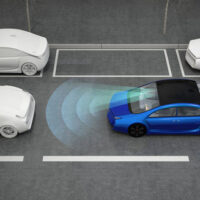Self-Driving Cars Create Legislative Nightmare For Congress

Is the driver responsible when their self-driving car injures another person? Yes. Is the company that manufactured the car responsible? Yes. Right now, the industry is teetering on what to do about self-driving cars. While self-driving cars purportedly can drive themselves, the vehicle’s driver also must maintain focus on the road—no easy task when your decisions are being made for you. Then what about the car companies that manufactured the software and sensors that make self-driving cars possible? Should they also be liable for injuries? It depends. Below, we’ll discuss the possible outcomes of lawsuits filed in cases of self-driving cars.
Right now, questions over liability are holding up legislation that would allow automakers to engineer and test self-driving cars.
When is the driver responsible?
Drivers are responsible for ensuring that their vehicles have been properly updated or, in the case of a recall, that the vehicle has been seen by the manufacturer to ensure that it is roadworthy. Drivers may also be responsible for certain decisions that are within their control even when autonomous driving is activated. However, the companies that are producing the AIs and sensor systems may be liable for the majority of accidents caused by autonomous vehicles. This could present a real impediment to manufacturers attempting to design AIs. Each year, there are millions of traffic accidents. Holding a company liable for the majority of autonomous crashes may drive them into bankruptcy or out of the autonomous car industry entirely. Nonetheless, someone is responsible.
The bill was introduced several years ago and passed through the House, but the most recent iteration of the bill includes language that would prevent consumers from filing lawsuits or forming a class. Debate over these provisions has held up the passage of the bill. The auto companies want to force consumers into arbitration and prevent classes from forming to file lawsuits. The measure died in committee as safety groups and trial lawyers opposed the provisions.
The role of tech companies
Tech companies have successfully forced customers into arbitration when remedying complaints against them. Additionally, the software itself is not considered a “product” but a “service”. This means that strict liability does not apply and that potential plaintiffs have to prove negligence making their cases harder to file. While tech companies have enjoyed this power without friction, the car industry operates under a completely different system of products liability. The merger of the two is something that Tesla, Uber, and other major companies hope to secure. Meanwhile, these same companies have backed off production of self-driving cars until the new legislation provides them clarity moving forward.
Talk to a Florida Defective Auto Parts Attorney
If you’ve been injured due to the malfunctioning of a tire or any other auto part, call the Coral Gables tire defect attorneys at Halpern, Santos & Pinkert today to schedule a free consultation and discuss your case in more detail.
Source:
insurancejournal.com/news/national/2021/05/24/615521.htm
